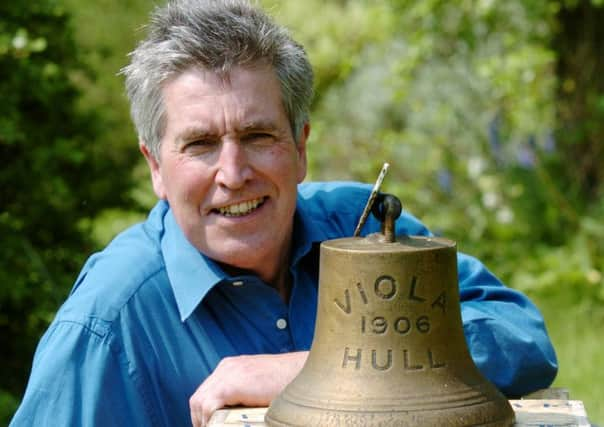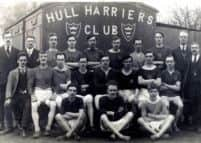Running out of time: The soldiers who never returned


Tomorrow 40 members from the club, City of Hull Athletic, formerly Hull Harriers, will mark the centenary of the race, by walking, running or cycling the same course.
Of the six the first to be called up to go to France was club captain and race champion Walter Barnes, who was first past the post in 48 minutes and 40 seconds. The 30-year-old reservist was killed on March 15 1915, by a German sniper bullet.
Advertisement
Hide AdAdvertisement
Hide AdThe rest joined the Pals battalions which all the industrial cities in Yorkshire raised, the Hull Commercials, Hull Tradesmen, Hull Sportsmen - and Hull T’Others.


The youngest to die was 21-year-old James Brocklehurst, from Plane Street, who served with the 10th East Yorkshire Regiment and who was killed in 1916; the oldest Lance Cpl Albert Bray, 35, who died in 1917 and whose name is listed on the Arras Memorial.
Such was the carnage that when the race was run again in the 1919-1920 season just eight signed up to take part.
But numbers gradually grew and today the club has around 200 members.
Advertisement
Hide AdAdvertisement
Hide AdAnd while it is known how many died, no one can say how many were too badly maimed or effected by gassing to run again. However one of the 1914 runners, Jimmy Magee, was still going strong in the 1950s.
Then the men - few women ran - wore long shorts, a brief singlet and basic light running shoes and the course they would have taken would have been down sparsely-populated country roads. The route has long since been swallowed up by suburbia, with only a mile-long stretch resembling anything the 1914 runners would have recognised.
The race will begin a few words and a minute’s silence.
Club archivist Robb Robinson said: “Among runners there is a great sense of camaraderie and this has just stuck a chord. It shows continuity - not only did we have runners who took part in WW1, but also WW2.
“Runners of all generations share the same characteristics - keenness to compete and better their times.
Advertisement
Hide AdAdvertisement
Hide Ad“Our pre-war club champion Bob Coupland was blinded in the D-Day invasion, but still came back as a runner.
“Not only do we do the same kind of racing, but we run over many courses that our predecessors would have run over.
“When they raced that February no one would have dreamed that within months they would have been engaged in such a great conflagration.
“These were all young men, in the prime of their life.
“Their deaths robbed them of the joys of life with their families and the joys of competing with fellow athletes.”
Advertisement
Hide AdAdvertisement
Hide AdFor the runners of yesterday-year road-racing wasn’t the best option. Road surfaces were poor and running gear basic. And while they would have headed off to a pub for drinks and a smoke after the race, tomorrow’s runners will go to a cafe for bacon sandwich and a cup of tea.
Robb said: “It was a handicap race with the slowest going first. You wanted to be back quick; they had a tin bath of warm water and the first to get back got it - the last got muddy, cold water.”
The club, which was formed in 1882, has an unusual connection with both World Wars reputedly having two clubhouses suffer direct hits in both WW1 and WW2.
Robb added: “There used to be am old wooden pavilion. Legend has it that it was destroyed in the War by a Zeppelin, although I have never been able to find any records. The clubhouse on Anlaby Park was definitely hit in WW2.”
Advertisement
Hide AdAdvertisement
Hide AdClub president Steve Holmes said: “We just want to remember them and the sacrifices they made. They enjoyed their running just as we do.”
Runners will meet at 9.30am and start from the corner of Calvert Lane and Anlaby Road, in west Hull.